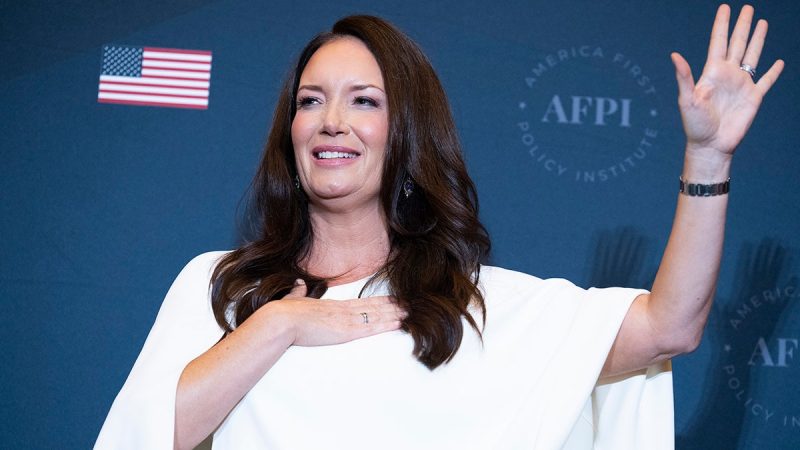In a recent political move that has raised eyebrows across the country, President Trump has appointed Texan Brooke Rollins as the new Agriculture Secretary. This surprising development has sparked a wave of speculation and debate about what this means for the future of agriculture in America. With a background in conservative politics and policy work, Rollins comes into the position with a unique set of skills and experience that could significantly impact the agricultural landscape in the United States.
Some observers have pointed to Rollins’ previous work as the head of the Texas Public Policy Foundation, a conservative think tank, as an indicator of the direction she may take in her new role. During her time at the foundation, Rollins was known for her advocacy of limited government intervention in agriculture and her support for free-market principles. This has led some to believe that Rollins may push for deregulation and reduced government oversight in the agricultural sector, a move that could have far-reaching implications for farmers and consumers alike.
However, Rollins has also been praised for her commitment to issues such as criminal justice reform and workforce development, which could signal a more holistic approach to her new role as Agriculture Secretary. Some have pointed to her experience working on criminal justice reform as an indication that she may be sensitive to issues of equity and fairness in agriculture, particularly when it comes to supporting marginalized communities and addressing racial disparities in the industry.
One of the key challenges that Rollins will face in her new role is navigating the complex web of interests and stakeholders that make up the American agricultural sector. From large agribusiness corporations to small family farms, the industry is a diverse and often contentious space that requires a deft touch to navigate successfully. Rollins will need to balance the competing interests of different groups while also ensuring that the needs of consumers and the environment are taken into account.
Another important issue that Rollins will need to address is the impact of climate change on agriculture. With extreme weather events becoming more frequent and unpredictable, farmers are facing unprecedented challenges in terms of crop yields and production. Rollins will need to work closely with farmers, scientists, and policymakers to develop sustainable and resilient agricultural practices that can withstand the pressures of a changing climate.
Overall, the appointment of Brooke Rollins as Agriculture Secretary represents a significant shift in the direction of agricultural policy in the United States. With her background in conservative politics and policy work, Rollins brings a unique perspective to the role that could lead to changes in how the government approaches agriculture. However, she will also need to navigate the complex and often contentious landscape of the agricultural sector while addressing pressing issues such as climate change and equity. Only time will tell how successful Rollins will be in her new role and what impact her tenure will have on American agriculture.
